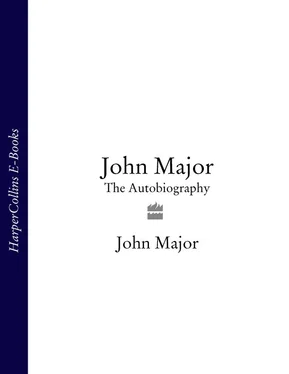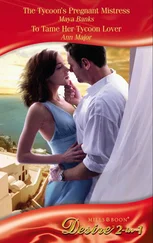As a result, Tony Barber, his predecessor, was bombarded with press and interviews at Manila, and I dealt with many of them on his behalf; it was my first exposure to high-profile politics, and it lived up to my expectations. I worked eighteen hours a day but it whetted my appetite for the drama of politics. I returned home even more eager for a political career.
When a vacancy for the Huntingdonshire constituency was circulated to all approved candidates I applied immediately, but was not hopeful. It was a rural seat with a large Conservative majority, and it seemed an unlikely home. Norma disagreed. ‘It is for you,’ she insisted. She knew the area because she had been sent to stay with her great aunt in nearby Bourn for summer after summer during her childhood, while her mother Dee continued to work through most of the school holidays. She was confident about Huntingdonshire from the start.
About three hundred candidates applied, including Peter Brooke, Chris Patten, Michael Howard and Peter Lilley, so I knew the competition would be tough. I contacted Andrew Thomson, the agent, and he generously answered all my questions about the association and the constituency.
The first interview merely involved the candidate giving a twenty-minute speech on a Saturday morning, followed by questions. It went well enough, and Andrew Thomson phoned me the next morning to tell me I had reached the last eighteen. Another interview followed, which went better, but against stiffer opposition I was not certain of progressing further. I followed Peter Lilley, and after I had finished, found him sitting on a bench at Huntingdon station waiting for the train to London.
‘It was fine,’ he said, responding to my enquiry, ‘but you never can tell.’ But I thought he looked despondent. Months later Peter was given a lift by a young agent, and was speculating ruefully on why I had been selected for Huntingdonshire. Who was I, he asked, and what had I done to earn such a gilt-edged seat? He seemed aggrieved. The young agent thought Peter was criticising me, and read him a lecture on my virtues. It was Peter Golds – my first trainee agent in Brixton.
After a third interview I was shortlisted. As Huntingdonshire was such a secure seat there was some interest in the final contestants. ‘Crossbencher’, the political column of the Sunday Express , said I hadn’t a chance of selection. Given Crossbencher’s forecasting record, this was good news. That same morning the phone rang. It was a member of the selection committee, Anne Foard.
‘I shouldn’t be phoning,’ she said, ‘but I am – so this must be private.’ She then gave me advice. Be yourself. Show humour. Bear in mind that half the constituency, and the electorate, are big-city overspill. ‘Oh,’ she said, ‘and by the way, the district council meet on Wednesday. It would be good for you to be there to listen. And to be seen.’
It was wise advice. Andrew Thomson had already said pretty much the same thing. Being used to the political activity of Lambeth, Huntingdon District Council was a pleasant surprise. I was almost the only spectator, and the object of as much interest, nudging and winking, as the agenda. And the debate puzzled me. It was fierce, and all about ‘local pyromaniacs trying to burn down our county’, as one councillor put it, to the accompaniment of much support. It seemed like a serious crime wave. Then sturdy, outdoor figures with weatherbeaten faces defended the pyromania, and the truth dawned: they were talking about stubble-burning. It was urban man against rural, and a real eye-opener into the issues that stirred the community. That visit to Huntingdon was one of the best investments in time I ever made.
On the way to the final selection meeting I was preparing myself mentally for another disappointment. I couldn’t get my head around the fact that I might be selected for one of the safest seats in England. Norma had no such inhibitions. She was confident we would win. As our second-hand Austin 1300 estate chugged towards Huntingdon she asked me if I had remembered that ‘Friday is an anniversary’. I hadn’t, but it was.
‘It’s five years to the day that you were selected as the candidate for St Pancras North,’ said Norma. ‘Tonight you must do it again.’
I am superstitious, and that seemed a good omen. The selection meeting was in the Commemoration Hall, Huntingdon, and the final opposition was tough. I learned later that Jock Bruce-Gardyne, formerly MP for Angus, had under-performed, having a foul cold. Lord Douro was thought to have had one piece of good news already that week, having become engaged to the Kaiser’s granddaughter. Alan Haselhurst, later Deputy Speaker, spoke brilliantly, and was the runaway favourite when I spoke, last of the four. It went well, and, the ordeal over, Norma and I returned to the holding room and then to the local pub to consider our chances as the balloting got under way.
The Commemoration Hall as we returned was a scene of pandemonium. A decision had obviously been made. Wild applause and cheering could be heard, and as we hurried to the holding room I peered through the glass windows in the door of the main hall and saw Anne Foard, my telephone confidante of Sunday, standing on a chair whooping, with her hands clapping above her head.
Moments later Archie Gray, the Chairman of the association, entered the holding room. We all stood, tense and expectant.
‘You’ve all done magnificently,’ he said. ‘It was hard to choose, but Mr Major has been selected.’ Smiling, he walked over and shook my hand. As he did so I knew the course of my life had been determined.
From the start Huntingdonshire fitted me like a glove, although a few of the older members were startled to have a candidate from Brixton and an agent from Glasgow. They soon mellowed. Norma and I immediately decided to move to the constituency and put West Oak on the market. Unfortunately for us, subsidence of a neighbouring house in our terrace reduced its value and made it more difficult to sell. It took months, and throughout that time I commuted between my home in Beckenham, my job in the City and the constituency in Huntingdon. We found a lovely house in St Neots but, to my fury, we were gazumped by a partner in one of the local estate agents. Eventually we found a conventional four-bedroomed detached house in the beautiful village of Hemingford Grey, and moved in just before Christmas 1977.
By this time I was already getting to know the huge constituency and its rich variety of interests. From the outset, I was treated as the Member-in-waiting and not the candidate. It was assumed that I would win, though ‘not by as many as Sir David’, as I was regularly informed, though never by Sir David. He saw the constituency changing, and had no fears for the majority. Sir David Renton, QC, KBE, MP was an immense support. He had been elected in 1945, still in uniform, as Major Renton, and he and his wife Paddy were as firmly entrenched in Huntingdonshire as any Member could be.
David and Paddy had a handicapped daughter, Davina, and both worked tirelessly for charities, especially the National Society for Mentally Handicapped Children. David began to involve Norma in this work, and her association with Mencap, as it became, was to grow through the years. I began to get used to mentally handicapped adults, whose minds had not aged with their bodies, holding Norma’s hand or cuddling her with all the affection of children. We came to understand how so many volunteers work so devotedly for this cause, and years later we were able to put the famous addresses of 10 Downing Street and Chequers to good use in raising funds for this and other charities.
David and Paddy Renton were kindness itself, and there was never the slightest friction between us. They entertained us at their home, supported us throughout the constituency and eased us into the mainstream of Huntingdon life. I shall always be grateful to them and hope, one day, to be as gracious to my successor as David was to me.
Читать дальше












